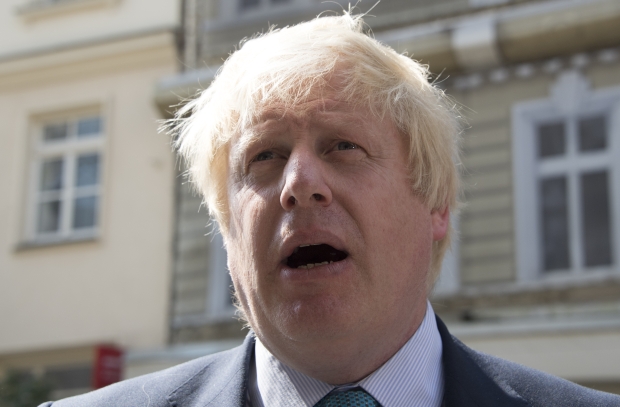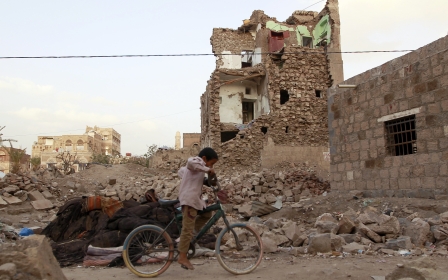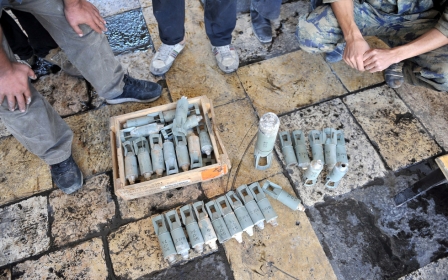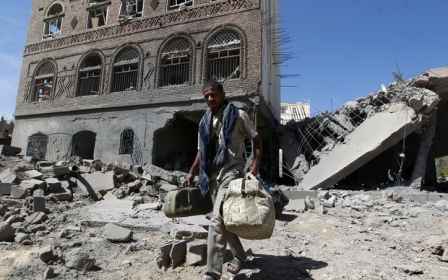British foreign secretary defends arms sales to Saudi Arabia
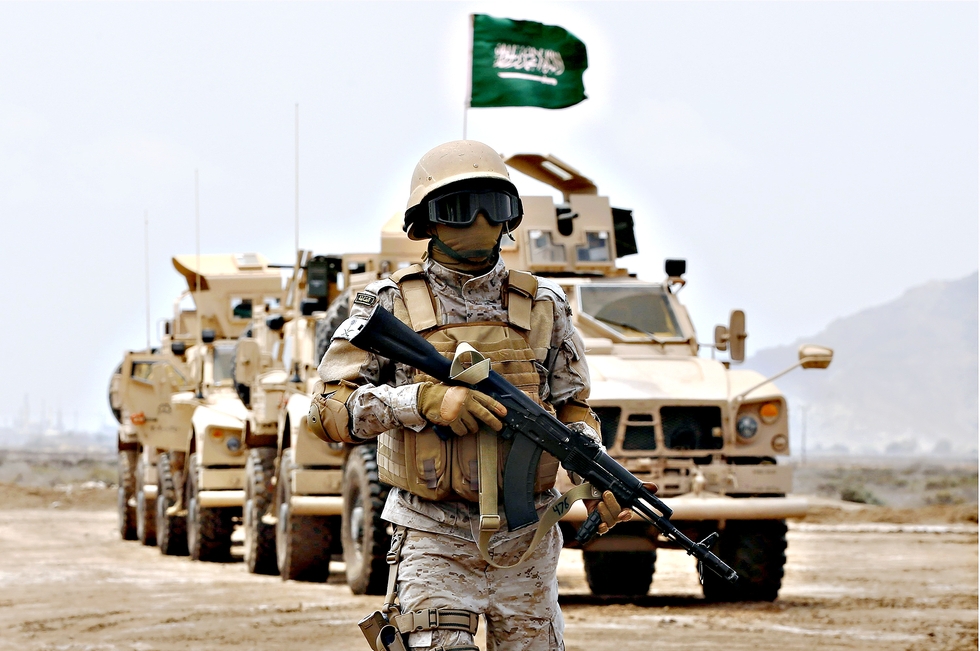
The British foreign secretary has defended UK arms sales to Saudi Arabia, saying the Saudi-led bombing campaign in Yemen is not “in clear breach” of international humanitarian law.
In a written statement to MPs on Monday, Boris Johnson said a report produced by Riyadh into eight separate allegations of indiscriminate bombing of civilians showed there was no "serious breach" of law, which was the "key test" on deciding whether weapons sales should continue.
His statement comes as MPs consider this week whether to call for a ban on arms sales to Saudi Arabia in light of allegations that it has indiscriminately bombed hospitals, factories and civilian areas during its campaign in Yemen.
"The key test for our continued arms exports to Saudi Arabia in relation to international humanitarian law is whether those weapons might be used in a commission of a serious breach of international humanitarian law," he said.
"Having regard to all the information available to us, we assess this test has not been met."
The UK has supplied billions of dollars of weapons to Saudi Arabia in recent years, including $2.8bn since the beginning of the Saudi campaign in Yemen.
The British army has also trained Saudi forces in targeting and weapons training this year.
In July, a Human Rights Watch report showed what was described as "compelling evidence" that British-made weapons had been used in attacks on civilians in Yemen.
The Campaign Against Arms Trade (CAAT), said it would use the report as part of its court challenge against the British government to end weapons sales to Saudi Arabia.
CAAT earlier this year won the right to a judicial review of arms exports to Saudi Arabia, arguing that the British government could not guarantee UK-made weapons were not being used by Saudi Arabia against Yemeni civilians.
"The report presents clear and compelling evidence of UK bombs being used against businesses and civilian targets," Smith said.
Johnson's statement relies heavily on a report produced in Riyadh on 4 August, which investigated eight alleged attacks on Yemeni civilians, including the bombing of hospitals.
The report defends the bombing on the basis that the Saudis had received credible intelligence that enemy Houthi forces were in the area. In one case it offered compensation to the victims.
Johnson defended the credibility of the report, saying the Saudis had "the best insight into their own procedures and will be able to conduct the most thorough and conclusive investigations".
"It will also allow the coalition forces to work out what went wrong and apply the lessons learned in the best possible way. This is the standard we set ourselves and our allies.”
However, since the release of the report, Saudi air strikes on 15 August killed 19 people at a hospital in Hajjah supported by Doctors Without Borders (MSF). It was the fourth attack on an MSF facility in Yemen in a year, and led to MSF withdrawing from parts of Yemen.
The Commons committee on arms export controls will meet on Wednesday, when it is expected there will be a cross-party push for the UK to suspend its multibillion-dollar arms sales to Saudi Arabia.
The UN last week said that at least 10,000 people have been killed in the 18-month Yemeni war.
New MEE newsletter: Jerusalem Dispatch
Sign up to get the latest insights and analysis on Israel-Palestine, alongside Turkey Unpacked and other MEE newsletters
Middle East Eye delivers independent and unrivalled coverage and analysis of the Middle East, North Africa and beyond. To learn more about republishing this content and the associated fees, please fill out this form. More about MEE can be found here.


